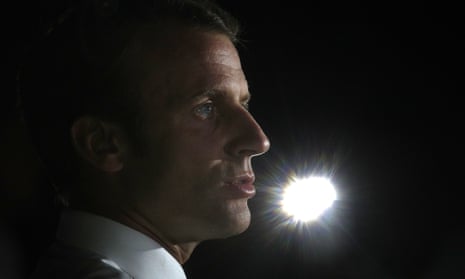On 16 May, France’s parliament passed an eagerly awaited bill meant to tackle sexual and gender-based violence. Vaunted by President Macron as a political victory and a step towards “making women feel safer on the streets”, the sexual violence bill has however been slammed by feminist organisations and children’s protection groups.
The reason? Article 2 of the new bill, which, in cases where coercion by an adult can’t be proved, classifies sex between an adult and a minor as sexual assault instead of rape. In doing so, the new law falls short of establishing a minimum age of sexual consent, breaking a promise Macron made last November.
Not without fanfare, Macron announced gender equality would be the “national cause” of his five-year term in late 2017, and his campaign promises included the creation of a ministry dedicated to women’s rights. Once elected, the president urged women to stand in local elections under his party’s banner, raising the proportion of female elected representatives in his party from 27% to just under 40%. After the election, Macron benefited from a “Justin Trudeau effect” when the international press hailed him as a hero of equality for forming a gender-balanced cabinet.
For many French women, however, the reality is that Macron’s government is failing on women’s rights. Take the European directive on extended parental leave, which would have given employees the right to four months of parental leave paid at 50% of the parent’s salary. Macron refused to back it, describing it to the European parliament as a “good idea” that was, however, “very expensive” and “could be unmanageable”.
Meanwhile, the promised ministry for gender equality was also quickly shelved. Instead, Marlène Schiappa was appointed secretary of state in charge of equality between women and men, a cabinet post with a far smaller budget than a fully fledged ministry. Another campaign pledge – that employers who do not implement gender parity could be “named and shamed” – stopped at two companies.
Schiappa herself has proved controversial. A former advertising executive who made a name for herself writing self-help books for working mothers, Macron’s youngest minister recently described her compatriots as a “romantic people” who, for “quasi-Freudian” reasons, need to be “governed by a couple”. A previous comparison between Brigitte Macron and Simone de Beauvoir was met with scepticism.
In this context, the bill was Macron’s chance to counter his critics and build on the momentum against sexual harassment generated by the #MeToo movement. It had, after all, found strong support in France, where thousands of women rallied under the hashtag #Balancetonporc (“Expose your pig”).
Two recent cases had also brought the consent cause to international prominence. In a decision that shocked many, French prosecutors refused to charge two men with rape after they had sex with 11-year-old girls. In the resulting scandal, a poll showed that 69% of French voters support the establishment of an age of consent.
Instead we have a new bill that could, feminist groups have convincingly argued, encourage prosecutors to classify cases of child abuse as sexual assaults instead of rape.
Admittedly, the bill has taken some steps towards addressing harassment. It allows for on-the-spot fines of up to €750 for catcalling in public, and extends the limitation for child sexual abuse victims to make a claim from 20 to 30 years from them reaching the age of 18.
Nevertheless the bill’s failure to establish a new age of consent has dominated the national conversation. An open letter to the president calling for the repeal of article 2 gathered the signatures of more than 200 French celebrities. Feminist Clémentine Autain summed up the mood for many, suggesting that the “mountain” that the #MeToo movement stands for has given birth to a “mouse” in the shape of the sexual violence bill.
As Macron’s record-low popularity and the recent waves of protests in France have shown, the president could do with a political boost. Instead, his gender protection policies have so far failed to live up to his liberal promises.
